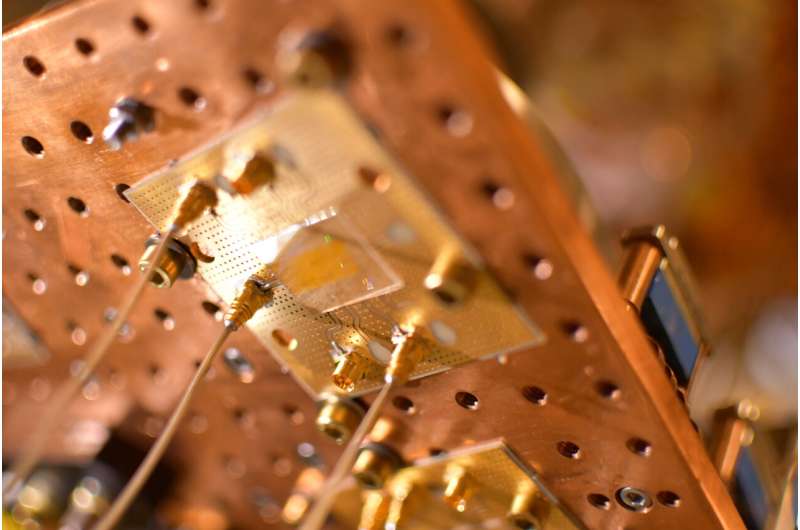Researchers control and modulate acoustic waves on chip for the first time

Acoustic waves are slower than electromagnetic waves of the same frequency but, even in the high-speed world of computing and communications, that's not a bad thing. Short acoustic waves are easy to confine in nanoscale structures, do not readily talk with each other and have strong interactions with the system in which they are confined, making them useful for both classical and quantum applications.
Now, researchers from the Harvard John A. Paulson School of Engineering and Applied Sciences (SEAS) have demonstrated the control and modulation of acoustic waves with an electric field on chip for the first time.
"Acoustic waves are promising as on-chip information carriers for both quantum and classical information processing but the development of acoustic integrated circuits has been hampered by the inability to control acoustic waves in a low-loss, scalable manner," said Marko Loncar, Tiantsai Lin Professor of Electrical Engineering at SEAS and senior author on this work. "In this work, we showed we can control acoustic waves on an integrated lithium niobate platform, bringing us one step closer to an acoustic integrated circuit."
The research was published in Nature Electronics.
Loncar and his team harnessed the unique properties of lithium niobate to build an on-chip, electro-acoustic modulator to control the acoustic waves propagating in on-chip waveguides. By applying an electric field, the modulator can control the phase, amplitude, and frequency of the acoustic waves on chip.
"This work advances using acoustic waves for quantum and classical computing," said Linbo Shao, a former graduate student and postdoctoral fellow at SEAS, and first author of the paper.
"Previous acoustic devices were passive but now we have the electrical modulation to actively tune the acoustic devices, which enables a lot of functionalities in the future development of microwave signal processing using these types of acoustic devices."
Shao is currently an Assistant Professor at Virginia Tech.
While this research demonstrated one device on chip, the researchers are working to build more complex, large-scale acoustic-wave circuits and interconnections with other quantum systems, such as diamond color centers.
"Our work paves the way for high-performance acoustic-wave based devices and circuits for next-generation microwave signal processing as well as on-chip quantum networks and interfaces linking different types of quantum systems, including solid-state atomic systems and superconducting qubits," said Shao.
The research was co-authored by Di Zhu, Marco Colangelo, Daehun Lee, Neil Sinclair, Yaowen Hu, Peter T. Rakich, Keji Lai and Karl K. Berggren.
More information: Linbo Shao et al, Electrical control of surface acoustic waves, Nature Electronics (2022). DOI: 10.1038/s41928-022-00773-3





















